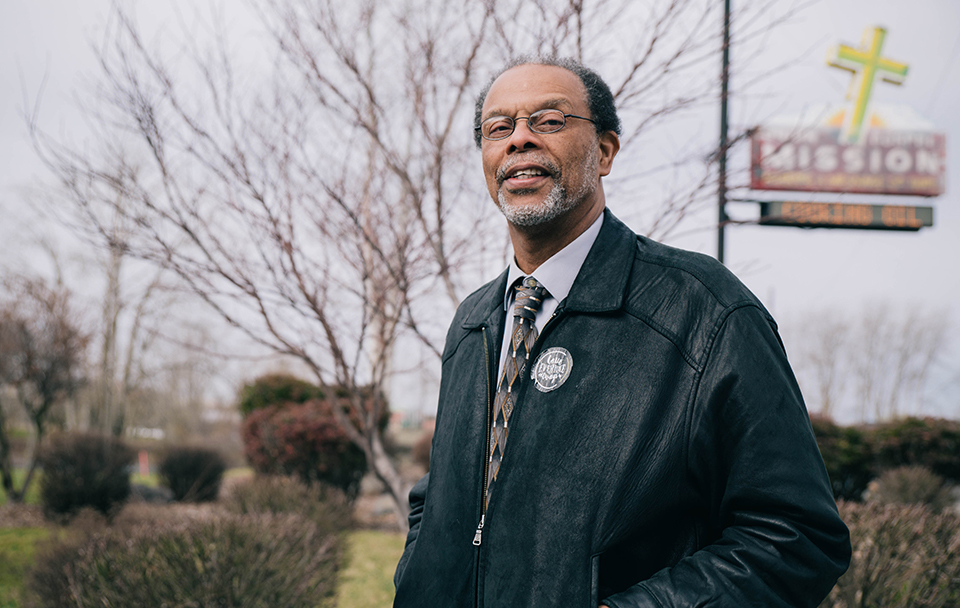2 min read
Gospel-Centered from the Start
“Let us hold unswervingly to the hope we profess, for He Who promised is faithful…Jesus Christ is the same yesterday, today, and forever.” (Hebrews...
4 min read
 Barbara Comito, former marketing director
:
December 31, 2019
Barbara Comito, former marketing director
:
December 31, 2019
“He has told you, O man, what is good; and what does the Lord require of you, but to do justice, to love kindness, and to walk humbly with your God?” Micah 6:8
When I decided to write about this verse as a vision verse for 2020, I knew I had to write about the last section first - “walk humbly with your God” – because that is the basis for doing justice and loving mercy, for doing good in the eyes of God. Unless we are walking with him, doing life with him, filling up on his loving kindness, seeing justice in his character, we cannot do the rest. We put on his righteousness. We love because he first loved us. We are only able to do good because of the goodness he has done.
When my boys were little, my husband used to sing them to sleep, using choruses from church. “Though all the peoples walk…” – Micah 4:5 set to music – was one of his favorites, along with “Jesus Loves Me” and little ditties he made up using their names: “Big Drew Man, Big Drew Man, he climbs out of his crib…” (He’s a chef, not a song writer.) But even now, almost 30 years later, I can still hear his voice, still picture him at the side of their beds.
“Though all the peoples walk, each in the name of his god. As for us, we will walk in the name of the LORD our God forever” – Micah 4:5.
I took a walk on this snowy morning (December 31, 2019) in Spokane, thinking about this verse, this blog post, and a lesson from UGM’s all-staff conference. Pastor J.O., his wife and his son – all on staff at Heart of the City Church in Coeur d’Alene – led a focus on spiritual growth, and this idea one of them shared stuck with me: We do not need to ask God to be with us. He IS with us. He never leaves us nor forsakes us, so rather than ask him to be with us, we need to turn to him like a friend as we walk down the road together. He is there.
 So this morning, I tried to practice that awareness of his presence, step by step. God, thank you for the incredible beauty of this heavy snow, clinging to every branch and twig. Please open my eyes. Let me see as you see. I talked to him about my neighbors: Lisa, who lost her mom and is caring for her dad with dementia, out shoveling the snow of two other elderly neighbors. Lisa, who forgave my daughter for running over her lamppost. Justice. Mercy. Bob, who has only one leg and is house-bound by the weather. Shanni, the artist. Tanner, the bachelor with all the big man toys who happily plows the snow for multiple houses. Sara, the school nurse. Ron, recovering from a brain tumor. How am I doing justice, showing mercy to them? I also thought about all the houses where I had no idea who lived there. It’s hard to be a good neighbor if you don’t know your neighbor.
So this morning, I tried to practice that awareness of his presence, step by step. God, thank you for the incredible beauty of this heavy snow, clinging to every branch and twig. Please open my eyes. Let me see as you see. I talked to him about my neighbors: Lisa, who lost her mom and is caring for her dad with dementia, out shoveling the snow of two other elderly neighbors. Lisa, who forgave my daughter for running over her lamppost. Justice. Mercy. Bob, who has only one leg and is house-bound by the weather. Shanni, the artist. Tanner, the bachelor with all the big man toys who happily plows the snow for multiple houses. Sara, the school nurse. Ron, recovering from a brain tumor. How am I doing justice, showing mercy to them? I also thought about all the houses where I had no idea who lived there. It’s hard to be a good neighbor if you don’t know your neighbor.
God, show me, lead me, guide me. I need your eyes. I need your love. I need your heart. I cannot possibly do this without you.
“Social justice” has become a hot-button phrase, but it really need not strike fear in our hearts. God is the author of justice. He loves justice. Again and again, he uses the word to describe how his people should treat the poor and vulnerable.

“This is what the Lord says: Do what is just and right. Rescue from the hand of the oppressor the one who has been robbed. Do no wrong or violence to the foreigner, the fatherless or the widow, and do not shed innocent blood in this place.” – Jeremiah 22:3
“Cursed is anyone who withholds justice from the foreigner, the fatherless or the widow.” – Deuteronomy 27:19
“Is not this the kind of fasting I have chosen:
to loose the chains of injustice
and untie the cords of the yoke,
to set the oppressed free
and break every yoke?
Is it not to share your food with the hungry
and to provide the poor wanderer with shelter—
when you see the naked, to clothe them,
and not to turn away from your own flesh and blood?” - Isaiah 58:6-7
Scripture is full of admonitions for God’s people to honor him by doing justice and fighting injustice.

Jon Bloom, pastor and author on staff with Desiring God, points out that it might have been easier if God had said to “love justice” and “do mercy.” We could then love justice as an idea – an abstraction – rather than having to carry it out. And many of us do kind acts, he writes, but do we love mercy? To love mercy, one must love people, and they are often not very lovable.
“If asked, virtually all people will say they love justice. But probe into how someone is specifically doing justice, and conversations turn awkward quickly. It’s much easier to ‘love justice’ than to ‘do justice.’ It’s much easier to rant against injustice than to take meaningful action to stop it. Ranting costs us little to nothing. Doing justice makes personal, time-consuming, heart-rending demands on us.”
Timothy Keller, pastor and author, draws this conclusion: “If believers in God don’t honor the cries and claims of the poor, we don’t honor him, whatever we profess, because we hide his beauty from the eyes of the world. When we pour ourselves out for the poor – that gets the world’s notice. Even when Christians were a small minority in the Roman Empire, their startling charity to the poor evoked great respect from the populace. To honor him, we must defend the poor and needy (Jeremiah 22:16).”
“Like doing justice,” Jon Bloom writes, “loving kindness is costly. It almost always requires loving people in ways that place their needs and preferences ahead of our own. We can’t love kindness and love selfishness at the same time. So, God tests our hearts by making kindness not merely things we do, but something we love.”
We are most inclined to love mercy when we think of God’s mercy to us.
This is how we know what love is: Jesus Christ laid down his life for us. And we ought to lay down our lives for our brothers and sisters. If anyone has material possessions and sees a brother or sister in need but has no pity on them, how can the love of God be in that person? Dear children, let us not love with words or speech but with actions and in truth. I John 3:16-18
God loved us (and continues to love us) when we were not/are not lovable. Meditating on that will cause us to love him more, and when we love him more, we are more inclined to love others, as well.

Friends, we hope you will join us as we ponder this verse throughout 2020 – memorize it, sing it, meditate on it. But do not be condemned by it. You can walk humbly, do justice and love mercy because Christ lives in you. He has done the work of redemption, and you are able to do all things through him.
We will revisit this verse throughout the year and invite you to share your reflections with us, as well.

2 min read
“Let us hold unswervingly to the hope we profess, for He Who promised is faithful…Jesus Christ is the same yesterday, today, and forever.” (Hebrews...

9 min read
To celebrate 75 years of serving the Inland Northwest, we are spending the year remembering our history and the faithfulness that built us and...

2 min read
In 2026, Union Gospel Mission Inland Northwest is approaching our 75th Anniversary! This is a milestone that invites gratitude and reflection, and...

In honor of Black History Month, we’re turning the blog over to three men for whom we have tremendous respect.

“If we claim to be without sin, we deceive ourselves and the truth is not in us” – 1 John 1:8.I have pretty much always been a good girl. I grew up...

Editor's note: This is Part 1 in a three-part series about loving the poor. Part 2 explores the meaning of the word "love"in this context, and Part 3...